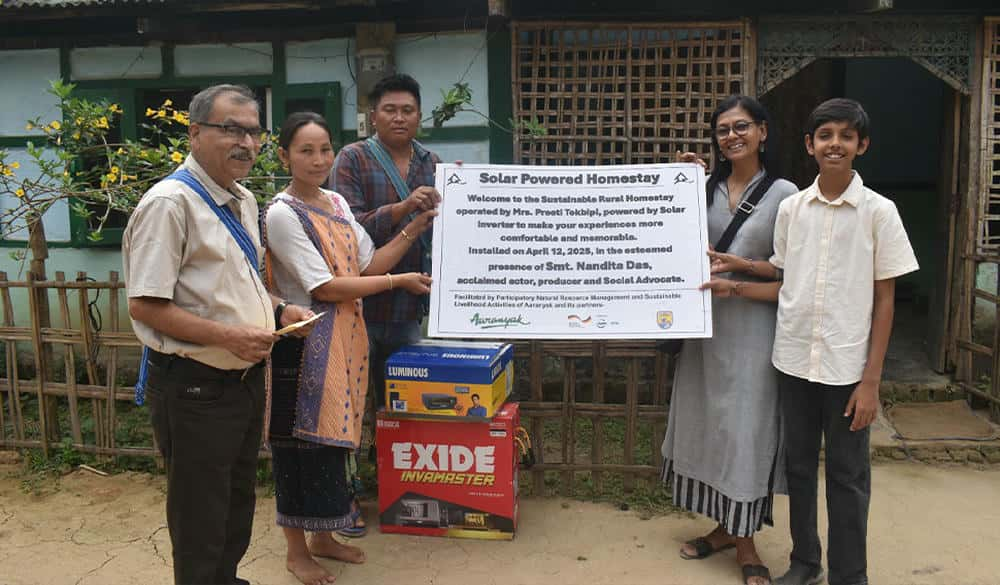Aaranyak empowers Kaziranga–Karbi Anglong homestays with solar inverters to boost sustainable tourism

In a step toward promoting eco-friendly tourism and enhancing rural livelihoods, biodiversity conservation group Aaranyak has distributed solar inverters to five homestays in the Kaziranga–Karbi Anglong Landscape of Assam. The initiative aims to empower local communities by ensuring clean, reliable energy access and supporting sustainable tourism practices in the ecologically sensitive region.
The homestays—Margaret, Preity, Anjana, Kareng, and Charne—are all located in Kohora, Karbi Anglong. They received solar inverters under Aaranyak’s broader mission to strengthen participatory Natural Resource Management (NRM) and promote environment-friendly livelihood models. The project is part of the “Journey for Learning” (J4L) initiative, which blends responsible tourism with local culture and conservation education.
Renowned actor and filmmaker Nandita Das joined the initiative during her recent visit to Kaziranga, participating in the symbolic handover of the first solar inverter. Her presence drew attention to grassroots sustainability efforts and highlighted the role of community-based tourism in conservation.
“This is a big help,” said Kareng Rongpipi, owner of Kareng Homestay. “Power outages used to trouble our guests and affect our services. Now with a solar inverter, we can offer a better and more dependable experience.”
The transition to solar energy brings multiple benefits: fewer fossil fuel emissions, reduced environmental impact, and greater independence for women entrepreneurs. With consistent electricity, women-led homestays can operate smoothly, creating income opportunities and reinforcing their role in community development.
The initiative supports 10 community-run homestays, all part of the Kindulangso Self-Help Group, which works closely with Aaranyak to promote eco-cultural tourism. Through the J4L programme, tourists engage directly with nature and indigenous knowledge systems in and around Kaziranga National Park, the Bhuyanpara Range of Manas National Park, and the Bhairabkunda region.
Aaranyak, in a press statement, reiterated its commitment to conserving biodiversity and supporting local communities through sustainable livelihood strategies. “This effort is supported by IUCN – KfW and the US Fish and Wildlife Service, reflecting a shared vision for a greener, community-led future in sensitive landscapes,” the organisation said.
By combining renewable energy access with responsible tourism, the initiative is not only improving living conditions for locals but also setting a model for low-impact travel in some of India’s richest biodiversity zones.

Leave a Reply